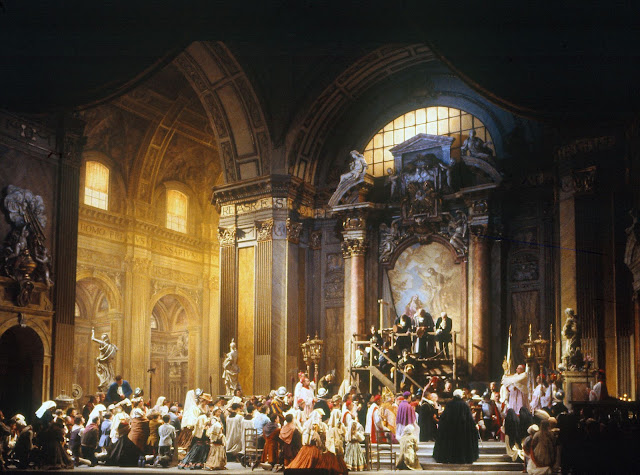Tosca And Tradition

In an interview last month, David McVicar, the director of the Metropolitan Opera's new production of Tosca , talked about how, when talking about productions of operas, people confuse "traditional" with "period." Peter Gelb took over as the Met's general manager in 2006, and since then, most of the company's standard repertory has been replaced with new productions, most of which in turn could be said to be "non-traditional." In general, productions can be non-traditional in one of two ways. They can either be set in a time or place apart from what the libretto specifies, or the choices made could be more artistic, with unrealistic sets and stylized costumes and whatnot. It's easy to spot a non-period production simply by looking for anachronisms. And the Met's had their share, from Michael Mayer's infamous Vegas-set Rigoletto , to ones that more or less flew under the radar, like Deborah Warner's Eugene Onegin, or Richa...